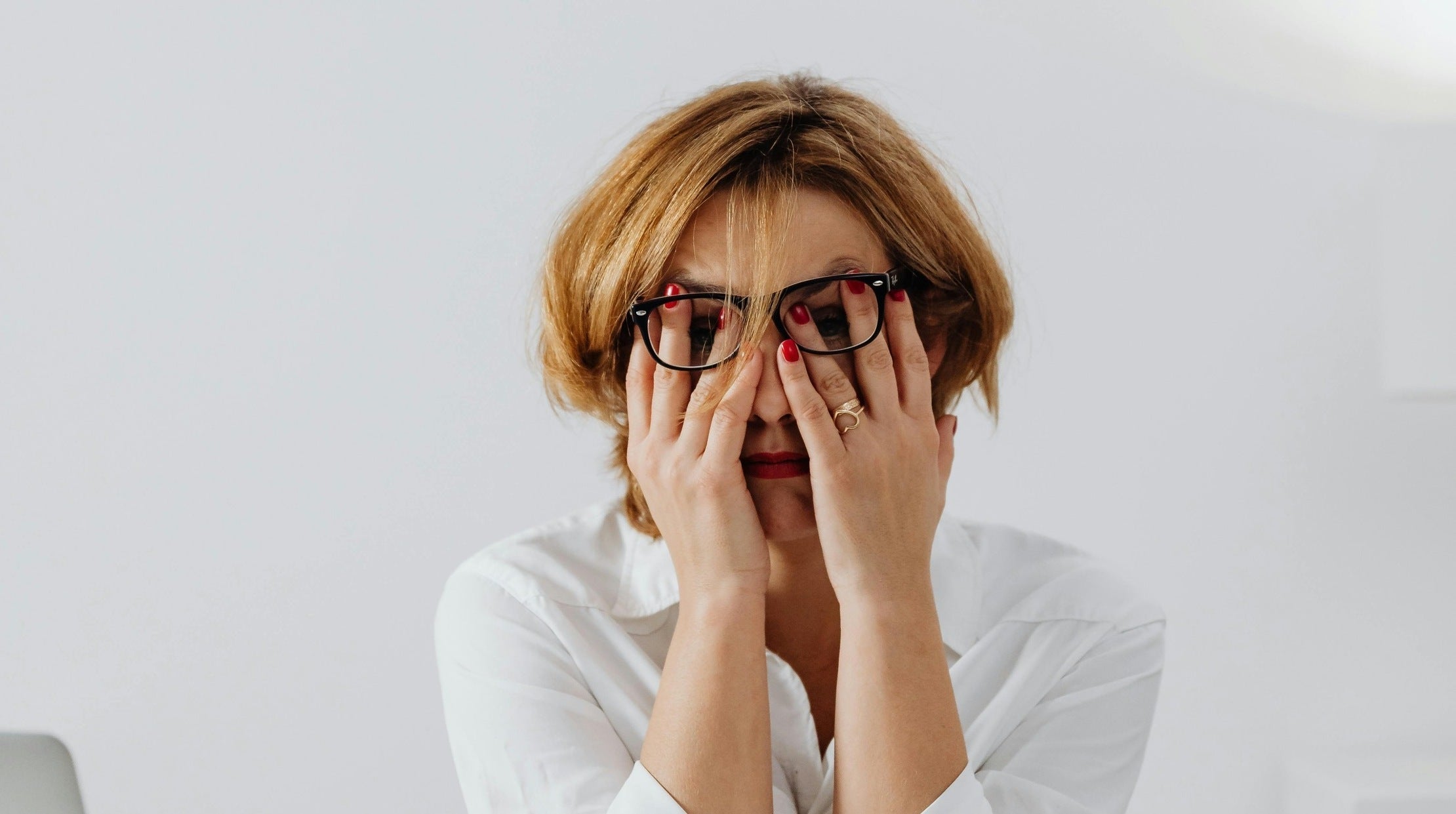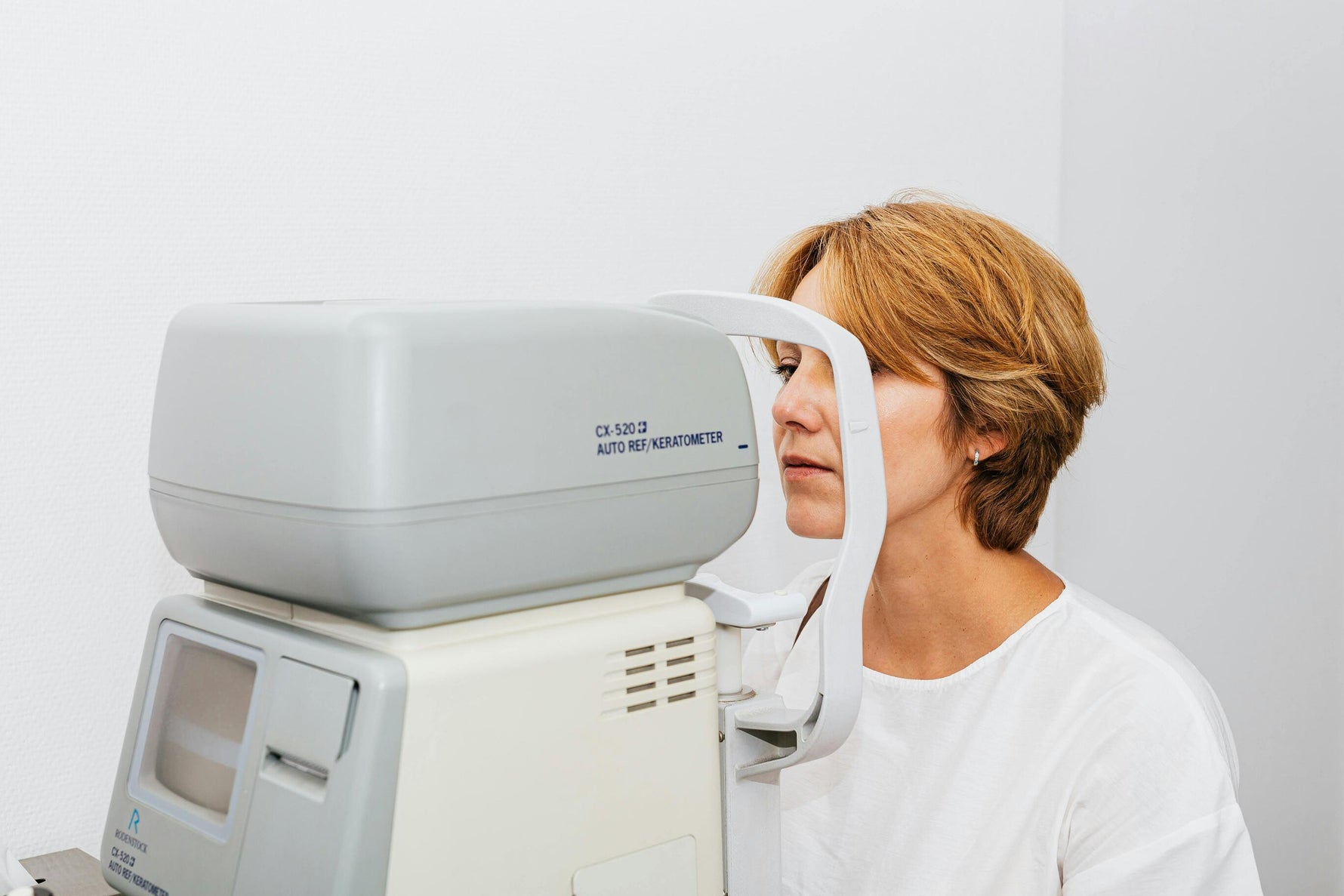Did you know?
TRY IN STORE
With ILOP, you can choose a pair of glasses online and book an in-store try-on.
Look for products with the "TRY IN STORE" button.
Simple, right?


Dry Eyes: Common Causes and Daily Solutions
Dry eyes are an increasingly common condition that affects people of all ages and lifestyles. Often underestimated or dismissed as a temporary nuisance, this issue can actually compromise visual quality and significantly impact daily well-being.
Those who suffer from dry eyes know all too well how challenging seemingly simple activities can become, such as reading a book, working on a computer, watching television, or driving at night. The sensation of burning, itching, or a foreign body, combined with blurred vision, can also affect concentration and productivity. In this article, we will explore the most common causes of dry eyes and practical daily solutions to restore comfort and visual well-being, with advice from ILOP specialists.

Why Do Eyes Become Dry?
The tear film that covers the surface of the eye serves to keep the eye hydrated, protected from dust and microorganisms, and properly lubricated during blinking. When tear production decreases or their composition is imbalanced, that uncomfortable sensation of dryness occurs. The causes can be numerous: environmental factors, daily habits, the use of digital devices, or underlying medical conditions. Identifying them is essential for effective intervention.
The Most Common Causes of Dry Eyes
- Prolonged use of digital devices: When we focus on a screen, we tend to blink less often, reducing the distribution of the tear film.
- Air-conditioned or heated environments: Dry, recirculated air, common in offices and homes, can accelerate tear evaporation.
- Contact lenses: Improper or prolonged use can increase the risk of dehydration of the ocular surface.
- Aging: Tear production naturally tends to decrease with age.
- Hormonal factors and medications: Certain treatments or hormonal changes (such as during menopause) can affect tear quality.
- Ocular or systemic conditions: Sjögren’s syndrome, blepharitis, or diabetes may be associated with the problem.
Daily Solutions for Better-Hydrated Eyes
- Regular breaks from screens: Follow the 20-20-20 rule (every 20 minutes, look at something 20 feet away for 20 seconds).
- Consistent hydration: Drinking water regularly helps keep the eyes well-lubricated.
- Humidifiers at home and in the office: Maintaining the proper humidity level reduces tear evaporation.
- Use of artificial tears: Preservative-free eye drops can provide immediate comfort.
- Eyelid hygiene: Gently cleaning the eyelids reduces debris and improves tear film quality.
- Eyewear with appropriate lenses: Anti-reflective coatings and blue light filters help reduce eye strain from digital devices.

When to Consult a Specialist
If dry eye becomes persistent, it is important not to rely solely on home remedies but to consult an optician or ophthalmologist. A professional examination allows the specific cause to be identified and a targeted treatment plan to be established, which may include medications, specialized eyelid treatments, or personalized advice on lenses and protective measures.
Book an appointment at our optical centers!
2025 ILOP S.r.l. - eCommerce: via De’ Musei 4, 40124 Bologna - Tel. (+39) 051 0826807 - P.I. 03799111202



